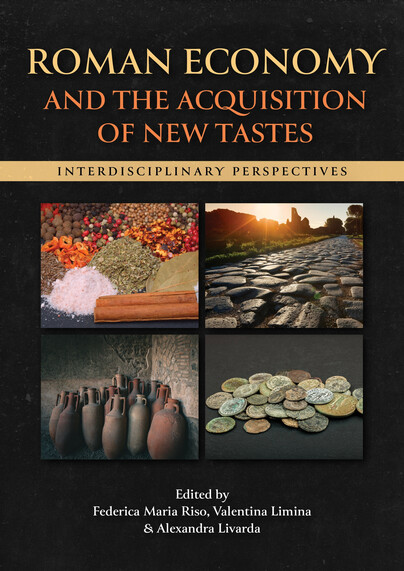
Format: Paperback
Pages: 224
ISBN: 9798888571552
Pub Date: May 2026
Imprint: Oxbow Books
Illustrations: 50 maps, graphs, photographs
Introductory Offer:
£32.00
RRP: £40.00
Not yet published
Description:
Based on the session ‘Interdisciplinary Perspectives into Roman Commerce, Economy and the Acquisition of New Tastes during the Roman Period from the 4th Century BC Onwards’ in the framework of the 29th European Association of Archaeologists Annual Meeting, this volume aims to provide insights into current research dealing with trade, networks and the acquisition of new ‘tastes’ in the Roman world, mostly in the Mediterranean but also on parts of continental Europe. The goal is to explore Roman commerce, economy and the multifaceted lifeways, employing different methodological perspectives and lines of evidence, through the investigation of a series of selected case studies.From the 4th century BC, the expansion of the Roman power around the Mediterranean and large parts of continental Europe had a significant impact on society, marked by political and economic changes. Creating a powerful infrastructure system increased contacts between different groups and cultures. The transport system was improved while new centers and social networks emerged.Mobility and connectivity are, therefore, pivotal when investigating the Roman world. People, foodstuffs, plants, animals, and ideas, moved within a new social and political system where new tastes and social practices were spread, mixed and acquired. Technological improvements in shipping and in container technology, institutional factors, the state investment in transport infrastructure, such as roads and harbors, to some extent, reduced the costs of long-distance trade, and increased demand, encouraging mass production of certain goods. Interconnection led to the spread of tastes, fashions and lifestyles all over the Mediterranean and beyond.This book ultimately sets to investigate the role of some of these ancient itineraries and networks, and that of trade, highlighting the development of new ‘tastes’ and lifestyles during the Roman period. The case studies included provide alternative perspectives on the theme, and new understandings of the impacts of connectivity and the ways to investigate it.

